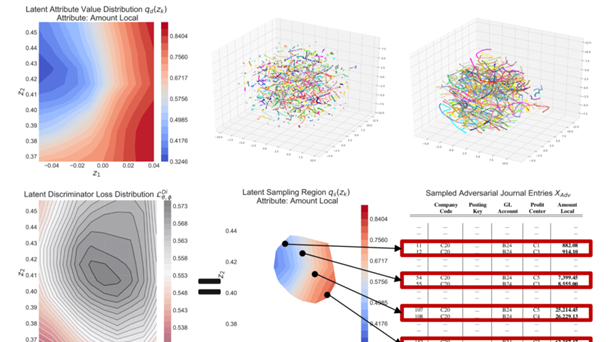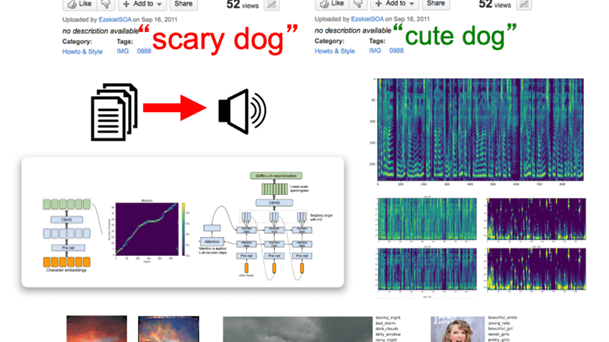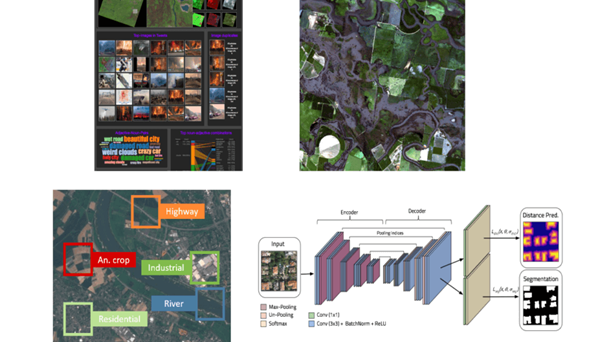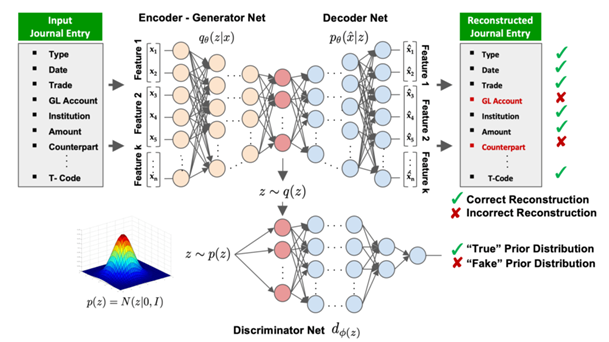The Artificial Intelligence and Machine Learning [AIML] chair headed by Prof. Damian Borth covers the area of deep neural networks. Our research focuses on representation learning through supervised and unsupervised approaches with applications to computer vision, remote sensing, text-to-speech synthesis, and financial time-series data. You can find more details about our research at www.hsg.ai.
Research

Representation Learning with Deep Neural Networks
Representation Learning with Deep Neural Networks
One of our fundamental research direction is representation learning with deep neural networks. Being able to understand, to disentangle, and to control the latent factors of the underlying data would make deep learning more scalable and more trustworthy. It would allow us to gradually move from supervised to unsupervised learning and therefore render model training less dependent on large amounts of labels. Additionally, having control over the latent space of the data provides interpretability of model inference, increase robustness, and allows to characterise model parameter in the weight space.

Analysis and Synthesis of Multimodal Data
Analysis and Synthesis of Multimodal Data
One of our research goals is to make the large amount of visual and audio content accessible. This includes besides the analysis of such data also the generation of synthetic data with natural characteristics. Currently we focus our research on neural Text-to-Speech (TTS) generation for the German language. In this scope we aim to develop novel approaches for speaker embedding, prosody control, and voice transfer.

Remote Sensing
Remote Sensing
We are interested in how we can utilize the vast amount of remote sensing data for earth observation. In particular, we aim to develop novel deep neural networks architectures able to consume the full ensemble of spectral bands from today’s satellites for applications such as climate change monitoring, natural disaster recovery, or changes in land use and land cover over time.

Financial Data
Financial Data
Our research in this area covers the analysis and forecasting of financial time-series data on the one hand and anomaly detection in transaction data on the other hand. Our research focuses in particular on financial markets and the audit domain.
Team
Damian Borth
Full Professor for Artificial Intelligence and Machine Learning
Büro 61-510
Rosenbergstrasse 30
9000 St. Gallen
Angelika Gräfingholt
Office Manager Prof. Borth
Büro 61-512
Rosenbergstrasse 30
9000 St. Gallen
Hamed Hemati
Researcher
Büro 61-504
Rosenbergstrasse 30
9000 St. Gallen
Konstantin Schürholt
Researcher
Büro 61-502
Rosenbergstrasse 30
9000 St. Gallen
Linus Mathias Scheibenreif
Researcher
Büro 61-502
Rosenbergstrasse 30
9000 St. Gallen (SG)
Joëlle Hanna
Researcher
Büro 61-540
Rosenbergstrasse 30
9000 St. Gallen
Léo Meynent
Researcher
Büro 61-540
Rosenbergstrasse 30
9000 St Gallen
Publications
Some title from image in wiki
Some text from image in wiki
Collaborations
Contact
Artificial Intelligence & Machine Learning (AILM)
Prof. Dr. Damian Borth
Rosenbergstrasse 30
CH- 9000 St.Gallen